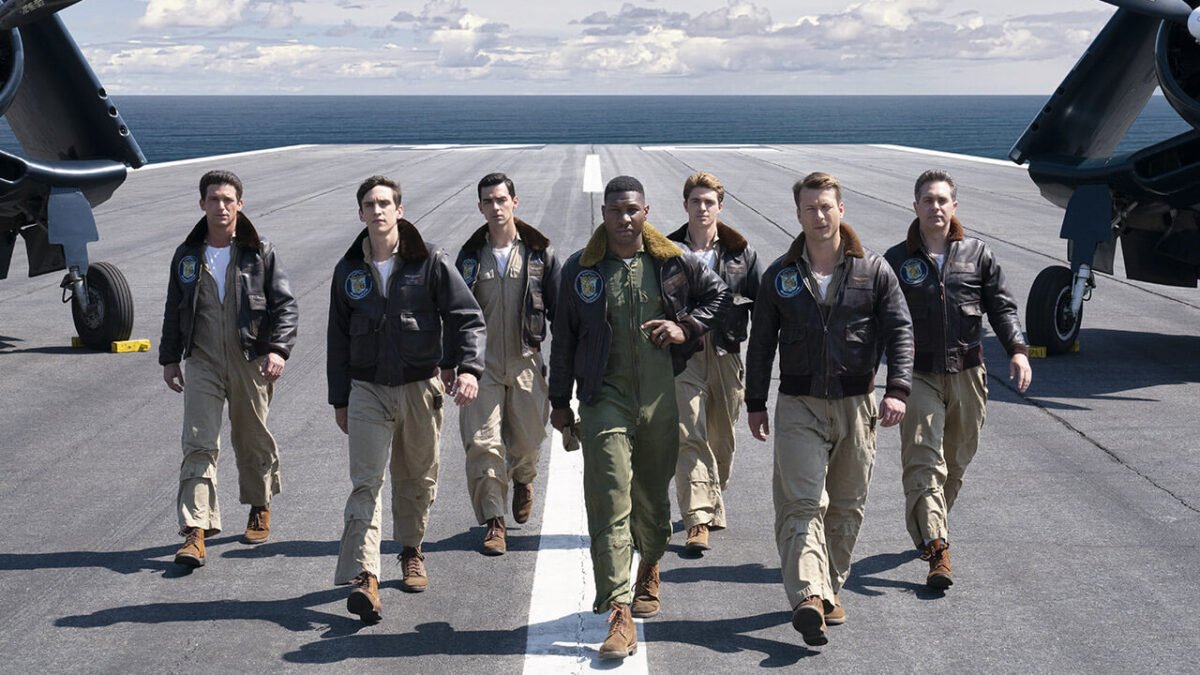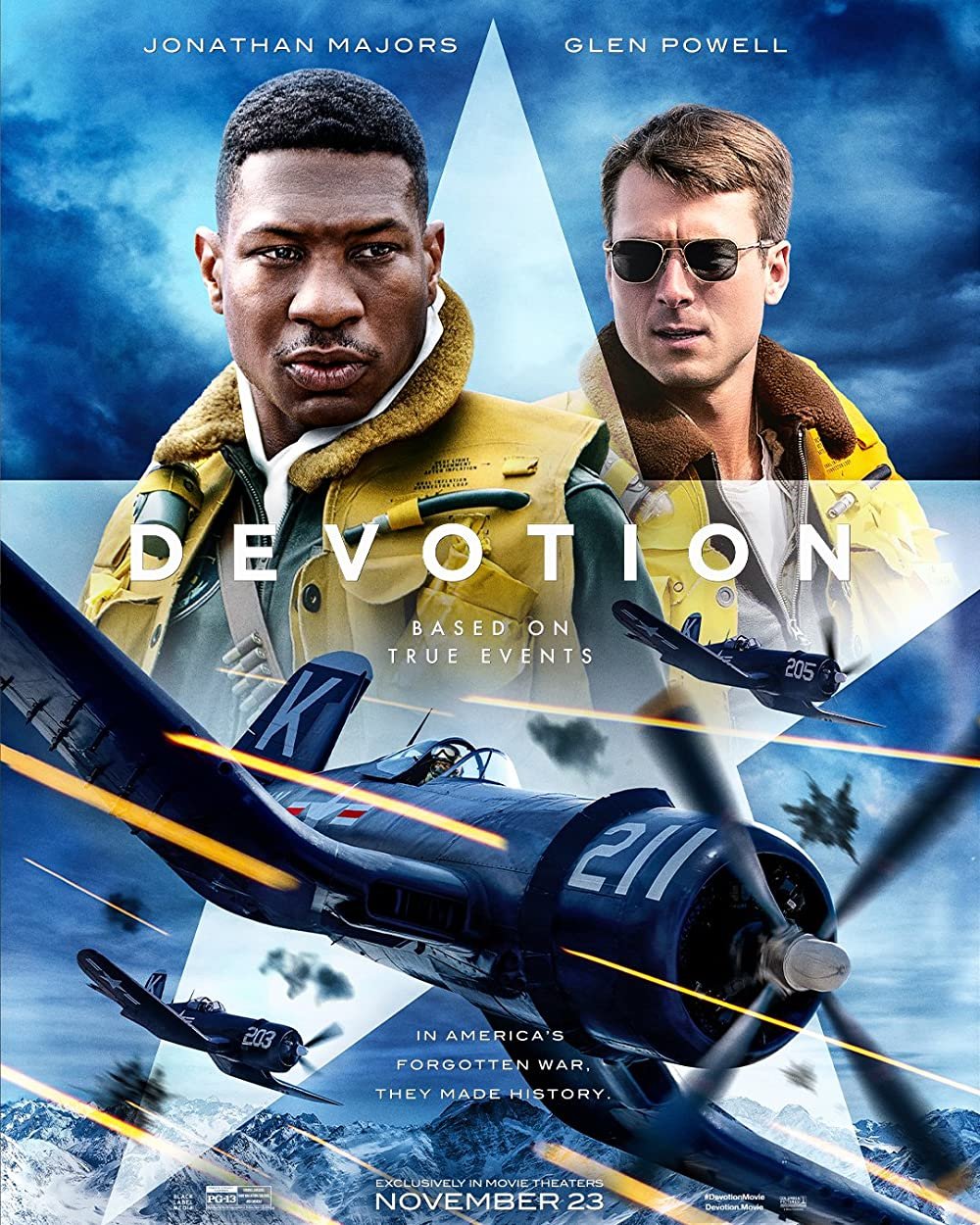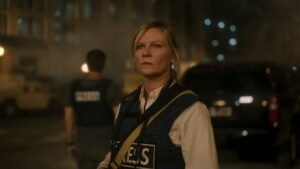The film Devotion was based on a similar title to the 2017 historical book, “Devotion: An Epic Story of Heroism, Friendship, and Sacrifice” by Adam Makos. Both the film and book recounted the story of the comradeship between the U.S. Navy’s most celebrated wingmen, Jessie Brown (Jonathan Majors) and Tom Hudner (Glen Powell), during the Korean War (aka ‘The Forgotten War’) in the 1950s.
The story of Brown was a very historic one as he was the first Black aviator in U.S. Navy history. Their war efforts greatly turned the tide on the most devastating battle of the Korean War. Devotion honoured this sentiment with its ability to get its actors and actresses to deliver raw emotions—particularly from Majors.
Majors’ depiction of Jessie felt like he was actually Jessie and lived his life. There was one devastating scene where Majors really hit my heartstrings with his facial expressions and the monologue he had with himself in a mirror. He demonstrated his acting chops here, which differed from his more villainous role on Disney+’s Loki or the most recent Ant-Man and the Wasp: Quantumania trailer.
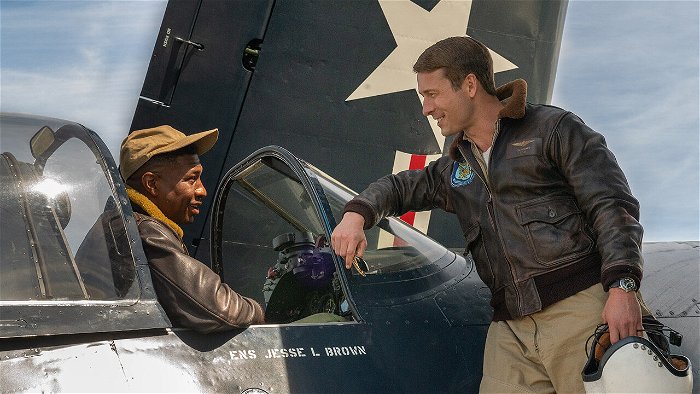
Powell’s role as Tom was a little less heartfelt, but that could have been the residual ‘Chad-like’ character he most recently played in Top Gun: Maverick. Joe Jonas’ performance was okay but did not stand out in a particularly special way compared to another musician/actor Harry Styles when he was featured in a different war film, Dunkirk.
In relation to Top Gun: Maverick, Devotion felt like a historical copy of the former movie. It was hard not to compare the two movies since they were both about U.S. Navy aviators going up against enemy gunfire—especially since they both came out this year.
I understand one film was a fictional depiction of aviators, and the other movie was historical. However, as an audience member, I still needed to have either some more mystery or something different to keep me reeled in. The story beats just seemed a little too similar to me.
I loved that Devotion differed in how it veered off the concept of a happy ending with the relationship between Tom and Jessie. It was like a rollercoaster of both respecting each other and disagreeing back and forth at different times throughout the movie.
“I enjoyed the fact Devotion did not do that stereotypical thing where the heroes finally mesh together on one ideology…”
Alternatively, the comradery between Tom and Jessie sometimes felt unearned due to the imbalance between scolding and praising. Every time Jessie shows admiration, being greatly overshadowed by how much Tom is scolded throughout the movie. The ending solidified their unbreakable bond and heroism. Still, I felt they needed to show more on-screen that the two characters were genuinely connected with more fleshed-out dialogue or actions.
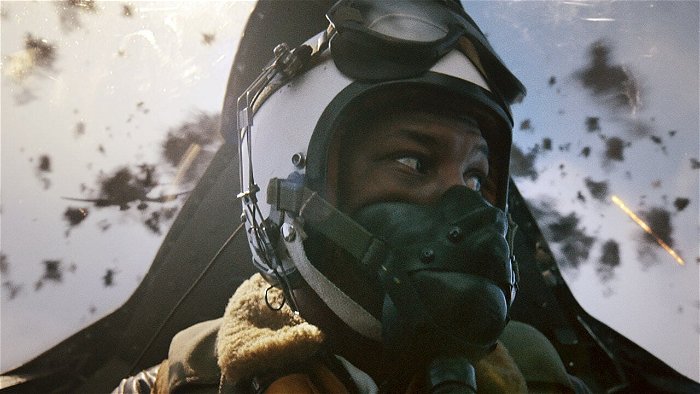
I enjoyed the fact Devotion did not do that stereotypical thing where the heroes finally mesh together on one ideology—the realism of what the characters were going through in each moment of their lives together made sense based on their reasoning and perspectives. Although Devotion had more bleak emotions as Jessie and Tom tried to figure out more about each other, it lacked some motivating factor to keep me excited from scene to scene.
Perhaps, it could have been that I wanted more dogfighting or flying scenes; however, the film seemed to want to stay as true to the historical accuracy and the book as possible. Historical retellings can sometimes be mundane to recreate on film, but there have been so many great examples of historical aviation-based war films that kept audiences interested.
Some of these included such as Red Tails, Pearl Harbor, Midway, Dunkirk and more. Devotion was somewhere in between many of these films because it still had enough tension to keep me near the edge of my seat, but the downtime felt very down.
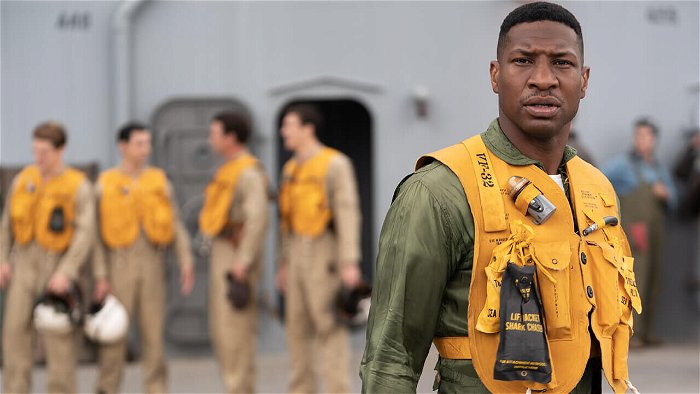
Aside from the contents of the adaptation, the cinematography was remarkable. Every time the aviators flew, it was beautifully shot—with either a shimmering sunset or snow-blanketed mountains in the background landscapes. Even the explosions and gunshots from anti-air guns popping off near the main cast were scary yet stunning shots to witness.
With a runtime of two hours and 18 minutes, Devotion tested my willingness to finish the film without crying or getting angry at some racial slurs and derogatory statements. I failed at both of those. The addition of the realistic reception of Jessie in the navy at that time was an appreciated touch that was not shadowed or underrepresented.
I thought J.D. Dillard portrayed the race issues of the 1950s U.S. Navy as balanced yet provocative in a way that could not be ignored or left to interpretation. The blatant racist comments and how he dealt with them made me empathize more with Jessie as the only Black aviator in the Navy at that time. Devotion was a film tailored for those who wanted to be inspired by another war film, tackled and portrayed racial issues accurately and shed more light on the less talked about Korean War.
